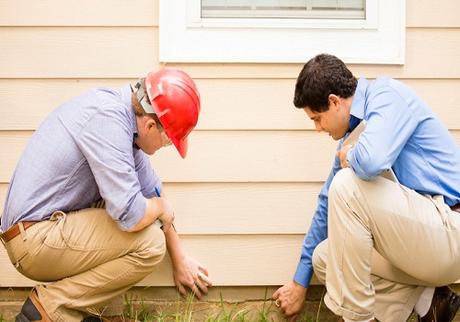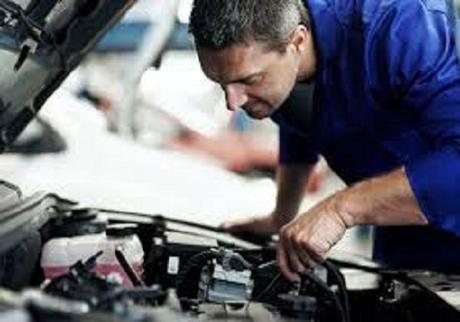Investing on an asset such as a home, car or motorbike is beneficial but risky too. No matter if you are buying an old one or new, most of the excited buyers often miss the issues related to property, mechanical & technical faults, and other visual inspections while purchasing. This type of deal could lead you in disaster and loss of money. So, to eliminate such kinds of problems, pre-purchase inspections are necessary. But first a buyer or seller must have to know about what the pre-purchase inspection is and how it is beneficial.

What is a pre-purchase inspection?
Pre-purchase inspection or abbreviated term PPI is a detailed assessment by a professional, done on property, vehicle or any other item you’re going to buy. In this inspection, the individual you hire will determine all the positive and negative sides before completing the purchase. Also, he or she will advise you on negotiations and legal terms to buy an old vehicle or building. And, if you’re buying a new property, he/ she will give you future benefits of it.
The types of inspection:
- Pre-purchase property inspection
- Pre-purchase vehicle inspection
What is covered in different inspections?
In property inspection: The buyer cannot see the hidden faults of any old or new property with a naked eye. But a qualified inspector can help you with this. A property inspection covers the most common building inspection problems, and some of them are:
- Issues with plumbing
- Opening and shutting system of doors and windows
- Damages in roofing, downpipes and gutters
- Structure of fencing and retaining walls
- Rising damp and termites in old properties
- Structures of garages and garden sheds
- Water drainage system
- Under floor and in-roof crawling structures
- Swimming pool inspection (if available)
- Essential supplies e.g. electricity, water

In-vehicle inspection: The focus of inspection lies on the current condition of any vehicle. The evaluator takes a short road test to inspect the vehicle on the sale’s point of view. Typically, the inspected areas are included as follows.
Common vehicle inspection problems:
- Structural integrity of vehicle
- Safety features
- Electric and electronic systems
- Suspension
- Fuel system
- Power train
- Steering
- Wheels and rims
- Emissions
- Interior
- Security system
=>In this inspection, the hidden damages due to crashes and rough driving are also checked if you are buying a second-hand vehicle. Also, the vehicle’s identification alternation is considered to save you from legal accusation.
Where is the pre-purchase inspection held?
For property: An inspection for property is held on-site because it is obvious you can’t move it. Only a professional and authorized person can conduct this investigation with the prior permission of buyer and seller as well.
The inspector makes a detailed report of the investigation done on the property and also mentions the losses and benefits of purchasing it. The inspection can be done into different phases before final settlement to ensure that the property is a beneficial deal to proceed. Otherwise, you can also step back on the report’s basis.
For vehicle: The inspection of a vehicle is usually held at the mechanic shop or garage from where a buyer is going to buy it. And, most of the dealerships are familiar with this process. An expert mechanic or automotive technician can conduct such inspection on the vehicle.
You can also hire any independent specialty shop for a thorough PPI on old vehicles. They took the vehicle for a test drive on the road and also investigated it with the help of tools. So, you could get a correct vehicle that completes on-road safety measurements. Also, help to invest your money on right automobile.
How much should it cost?
No inspection can be done free of cost. A buyer typically pays for the checks either they are building pre-purchase inspections or vehicle investigations. Cost depends upon the type and size of the investigation. Usually it costs around $100 and sometimes less or more than that. The company or person you choose for inspection can also declare own price to pay. It is advisable here to take a market research before hiring any inspector or a company.
What if damage or fault is found during inspection?
Well, it depends upon the buyer, if he/ she wishes to go ahead with that damage or fault. Sometimes it turns into a great negotiable deal for the seller as well as for the buyer. PPI is done to inform you about such faults and ensure that any previous damages have been repaired properly. And, if you are not satisfied after the report, you can step out of the deal or make it a good point to negotiate the amount from the seller.
Benefits of inspection before buying:
Negotiation over deal
After a pre-purchase examination on the property or vehicle, you get a complete report predicting all the benefits and issues. And, if you find any fault, you can negotiate over the price with the seller. This is the best way to get a good margin over the price told before.
Save money on further repairs
This inspection when informing you about any damages, can also suggest further repairs. If these repairs are more costly, you can ask the seller to perform repairs or negotiate a price. This way you can save your time and money. Buying an old property or vehicle like car needed such an advanced inspection to save you from repairing hazards.
Help you to invest in right asset
While saving your money and time from any kind of hazards, pre-purchase inspection helps you to invest in good assets for the long run. The assessment also predicts the future benefits of the property or vehicle.
Diagnose all the components
Whether it is a building or vehicle, an inspector is well certified to diagnose all the components before you purchase. If the item is in good condition, he or she advises you to move further for a deal. Otherwise, you can cancel or you can make changes in your deal with the seller.
Some cons of pre-purchase inspection
Cost of inspection: Yes, you need to pay for the inspection that might be sometimes costly. Most of the time, these costs are borne by the buyers only and few of them are on sellers’ points.
Disclosure laws: Depended upon the state disclosure laws, you must have to uncover everything about the asset. This might lead you to financial disadvantages if you are a seller.
Buyer’s inspector could find something new: No matter if you are done with your own investigations, if a buyer wants to re-inspect the property or vehicle. And, he or she might identify some new problems that obviously caused a loss to the seller.
Lower the value: If the new problems are identified by the buyer’s side this can lower down the value of the asset. So, before purchase, hire a good inspector that advises you on beneficial deals.
================================================================
Author Bio:

Ariana Mortenson, a professional writer, and blogger by profession. I write on various niches in a way that it’s understandable and appealing to the people. I aim to achieve a difference through my writing which allows you to make informed and valuable choices. Follow me: Twitter, LinkedIn, Pinterest
